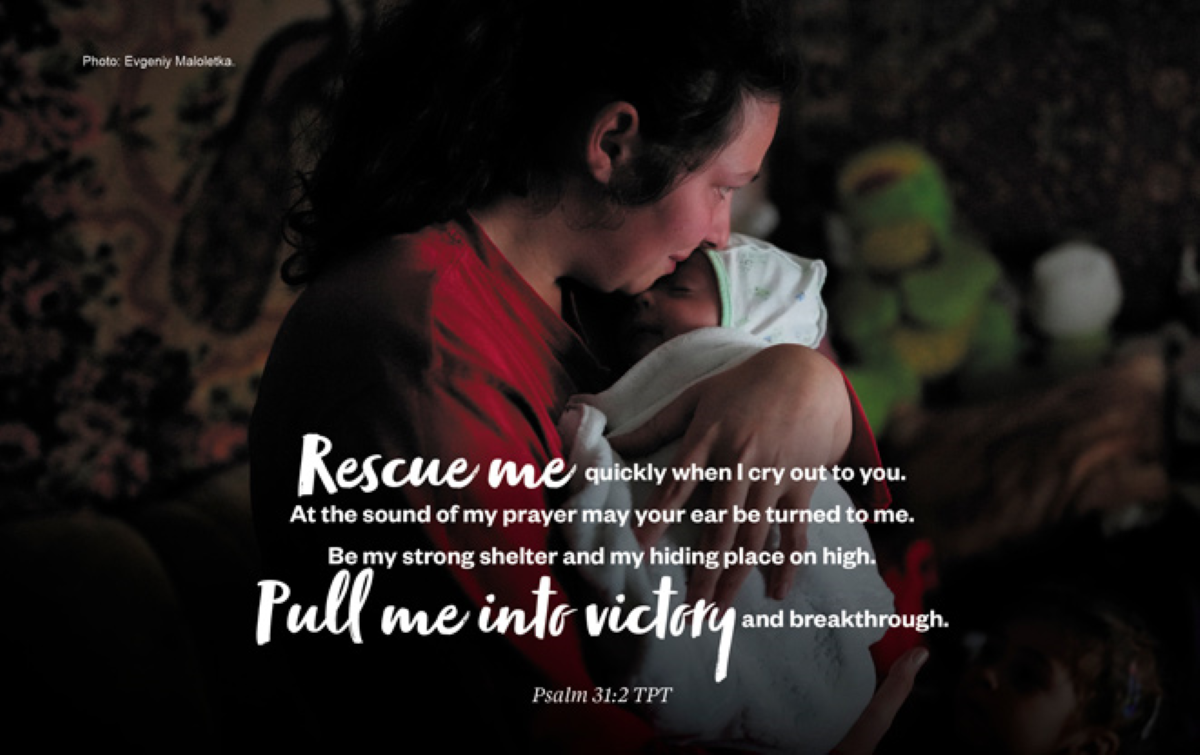Where is God in the Ukraine Crisis?
9147 0
1. Where Is God in all this?
It depends on the kind of God you believe in. Is “god” a small, aloof deity, who doesn’t pay attention until we do something that warrants it? Then that “god” isn’t involved at all. But we know God as Jesus has revealed him. God is the Father who is “close to the brokenhearted” (Psalm 24:18). God is the Spirit who suffers along with us and the suffering creation (Romans 8:22-27). God is the Son who entered this world afflicted by evil and sin and overcame it through the cross and resurrection (1 Corinthians 15:54-57). I certainly don't have all the answers, but one thing I'm convinced of is that God is a God of love, who loves his people and whose heart breaks for the hurting.
Can we see God at work in this crisis? Yes and no. God is involved in diverse ways. At one level, we should remember that God is never not involved in the world. God is the Creator who is always holding up his creation and carrying it forward. At another level, God is involved in ways we don’t immediately or visibly perceive, shaping circumstances and events. There are miracles we cannot see, that won't make the news. There are stories we will never hear, but God is there. At the most visible level, God uses the humans that he created to embody his love. The ultimate way God got involved in our world was by becoming human as Jesus Christ. God is involved through the Church, through Tearfund, our supporters and expert partners in the field. God is active in the families willing to host refugees, the thousands of volunteers giving hot meals, clothes, water, and essential items. God is in the pain of those in danger, and in the efforts of those working to bring peace.
We can see glimmers of the imprint of God's goodness through stories of Ukrainians caring for a surrendered Russian soldier by giving him a hot drink and letting him Facetime his mother. We see it through innovative gestures like people who have paid for Airbnb rentals which they will never use to channel funds to war-affected families. We see it through the people in neighbouring countries who have intentionally left prams at train stations, so mothers have a way of transporting their little ones as they arrive. God is close to the broken-hearted, he is weeping with those who weep and mourning with those who mourn. His love is clear in this crisis, and when we believe in Him, there is always hope.
 God gets involved through humans.
God gets involved through humans.
2. How is the Bible relevant in situations of war?
The Bible is no stranger to war and conflict. Sure, we might struggle to understand some of the times in the Old Testament that are so different to our own, but what is clear is that Jesus instructed his followers to work for peace (see Luke 14:32; 19:42) and to lay down the sword (Matthew 26:52; John 18:11). Another way to use the Bible right now is to pray through Psalm 31 along with scores of Ukraine Christians doing the same. So much of the Bible was written out of deep pain and conflict, so it should be no surprise that it is so relevant in times of suffering.
 So much of the Bible was written out of deep pain and conflict.
So much of the Bible was written out of deep pain and conflict.
3. How should we pray?
Prayer is not about waking God up or causing God to care. God already cares more than we can imagine. Prayer is being honest to God about our fears, needs and concerns. It’s offering the world and ourselves to the One who holds it all and simply asking for help with childlike faith. When we pray, we nurture in ourselves a healthy dependence on God.
So, we can be simple and honest in our prayers, and be open to God asking us to be the answer to the prayers we pray. We can pray for God to show mercy, to bring justice and peace. To stop violence and to protect the vulnerable. We can pray for the work of politicians and humanitarians working to help their global neighbours, using whatever influence and resources they have. And finally, we can pray for ourselves, that we would be people of compassion and peace, rather than those who join in hasty judgment and feed conflict.
For more on how to pray–check out our blog: How to Pray for Ukraine
For more on how to understand God, Faith and the Ukraine Crisis–check out our Ukraine FB Live with Rev. Frank Ritchie and Dale, hosted by Claire Gray.